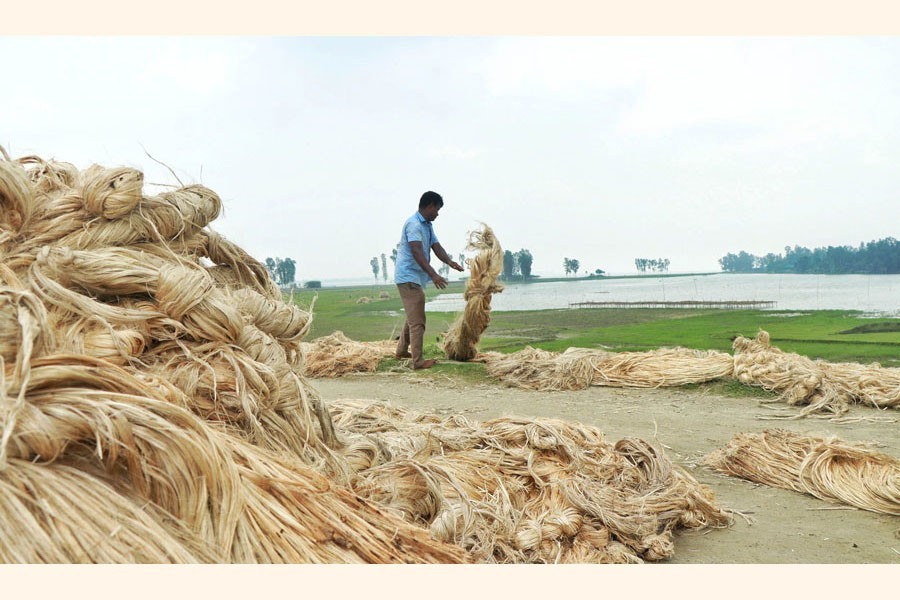The country's jute sector will get required financial support as the government has declared that jute will be considered an agricultural product from now on, according to the Ministry of Textiles and Jute.
Earlier, a cabinet meeting, chaired by Prime Minister Sheikh Hasina on January 9, declared jute 'an agricultural product'.
Like other agricultural products, all kinds of incentives must be given to farmers who cultivate jute, she then said.
Meanwhile, Textiles and Jute Minister Golam Dastagir Gazi, on behalf of his ministry, jute traders and producers, entrepreneurs of jute goods, and jute goods users, has thanked the prime minister for declaring jute as an agricultural product.
He expressed his gratitude during a meeting with the Federation of Bangladesh Chambers of Commerce and Industry (FBCCI) and Bangladesh Jute Mills Association (BJMA) at the conference room of his ministry on Wednesday.
Following the prime minister's declaration, the jute sector from now on will get required financial facilities from the government.
Mr Gazi said that the government has taken initiatives to diversify jute products and increase the use of jute through the Jute Diversification Promotion Centre.
He said that the present government has been providing 5.0-25 per cent cash incentives to encourage the export of the country's jute goods.
The jute promotion centre is now producing 282 types of eye-catching jute products - most of which are being exported.
He told the business delegation that fairs will be arranged in foreign countries to popularise Bangladeshi jute products.
Moreover, seminars, meetings and promotional campaigns will also be held in future to popularise jute goods, he said.
The minister said that the government earlier provided farmers with agriculture inputs, like urea, TSP and MOP fertiliser and Ufshi variety jute seeds, for facilitating jute cultivation.
Besides, the agriculture ministry and the textiles and jute ministry have prepared a roadmap for producing quality standard seeds, in order to reduce the country's dependency on import of jute seeds.
If all goes well, the country will become self-reliant on producing high quality jute seeds, he added.
Secretary to the textiles and jute ministry Md Abdur Rouf, FBCCI Senior Vice-President Mostofa Azad Chowdhury Babu, and Chairman of Bangladesh Jute Mills Association Md Abul Hossain, among others, were present at the meeting.


